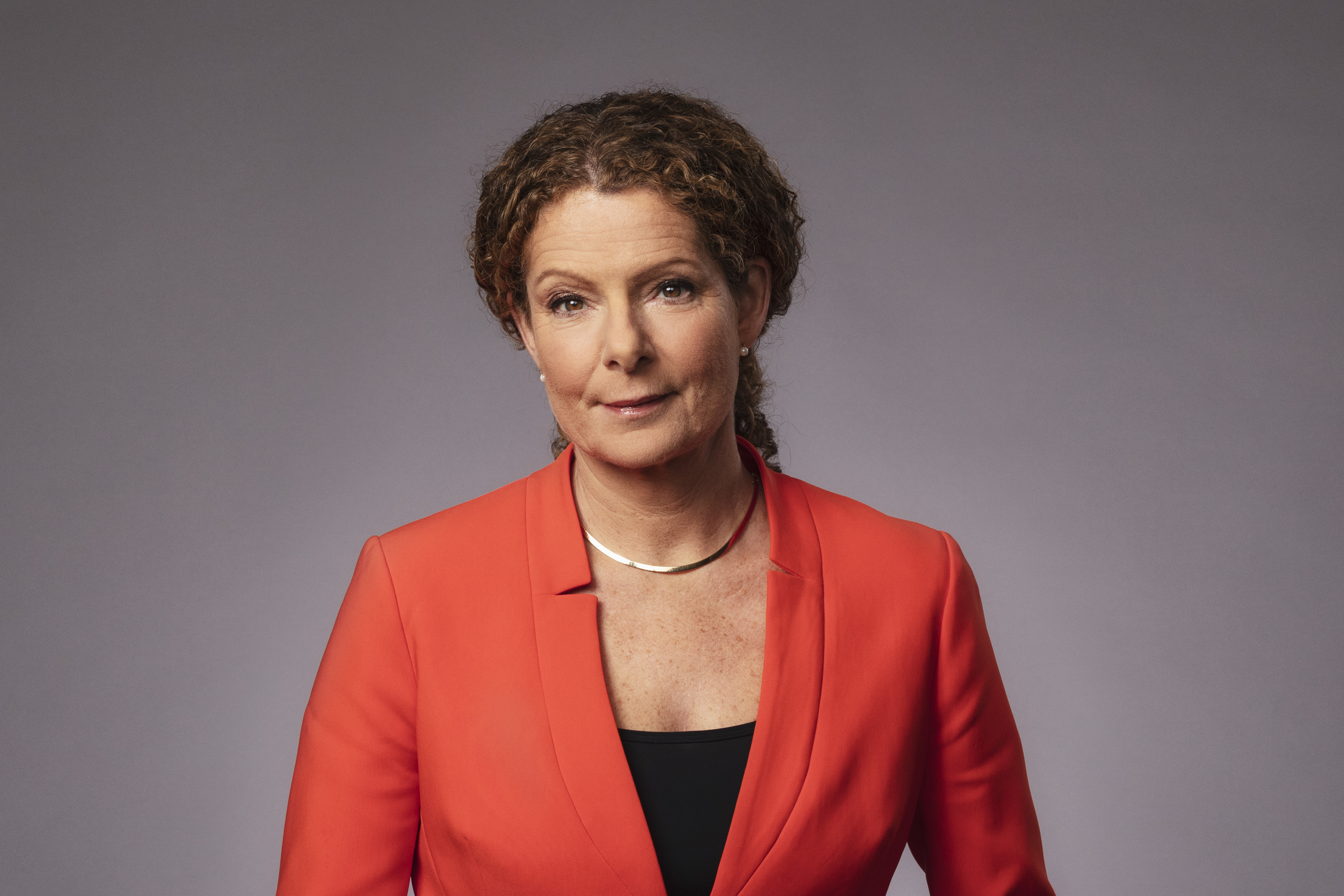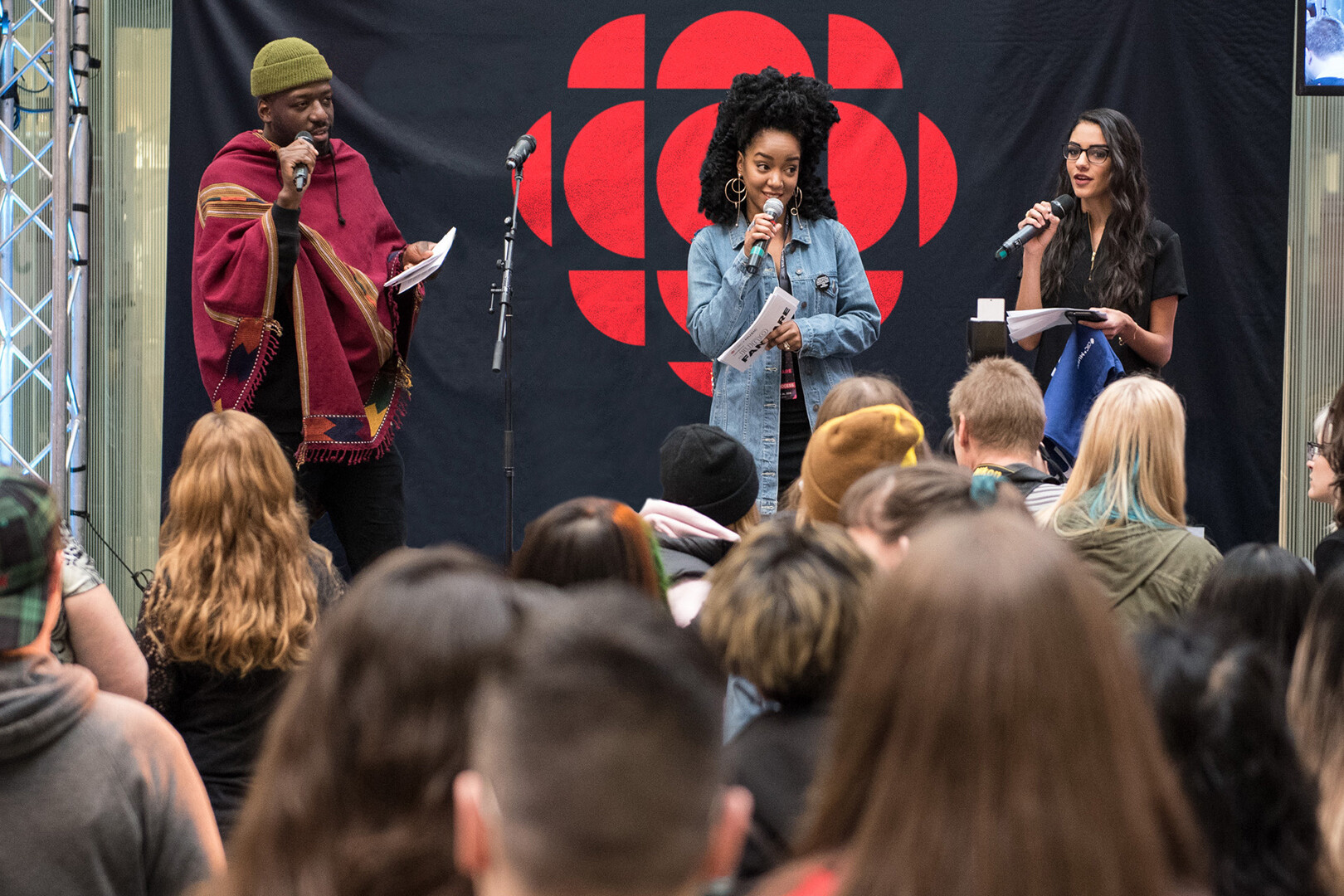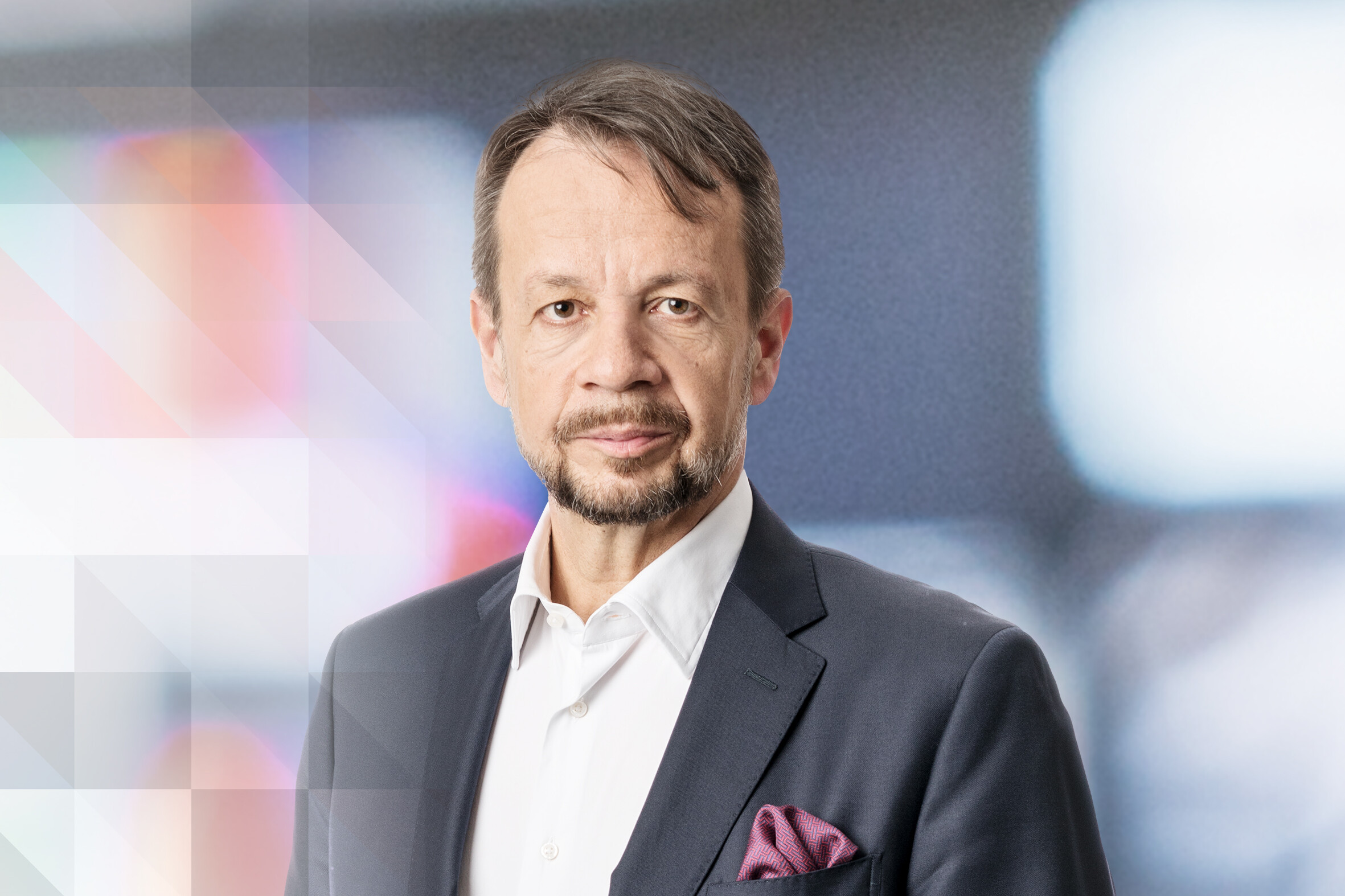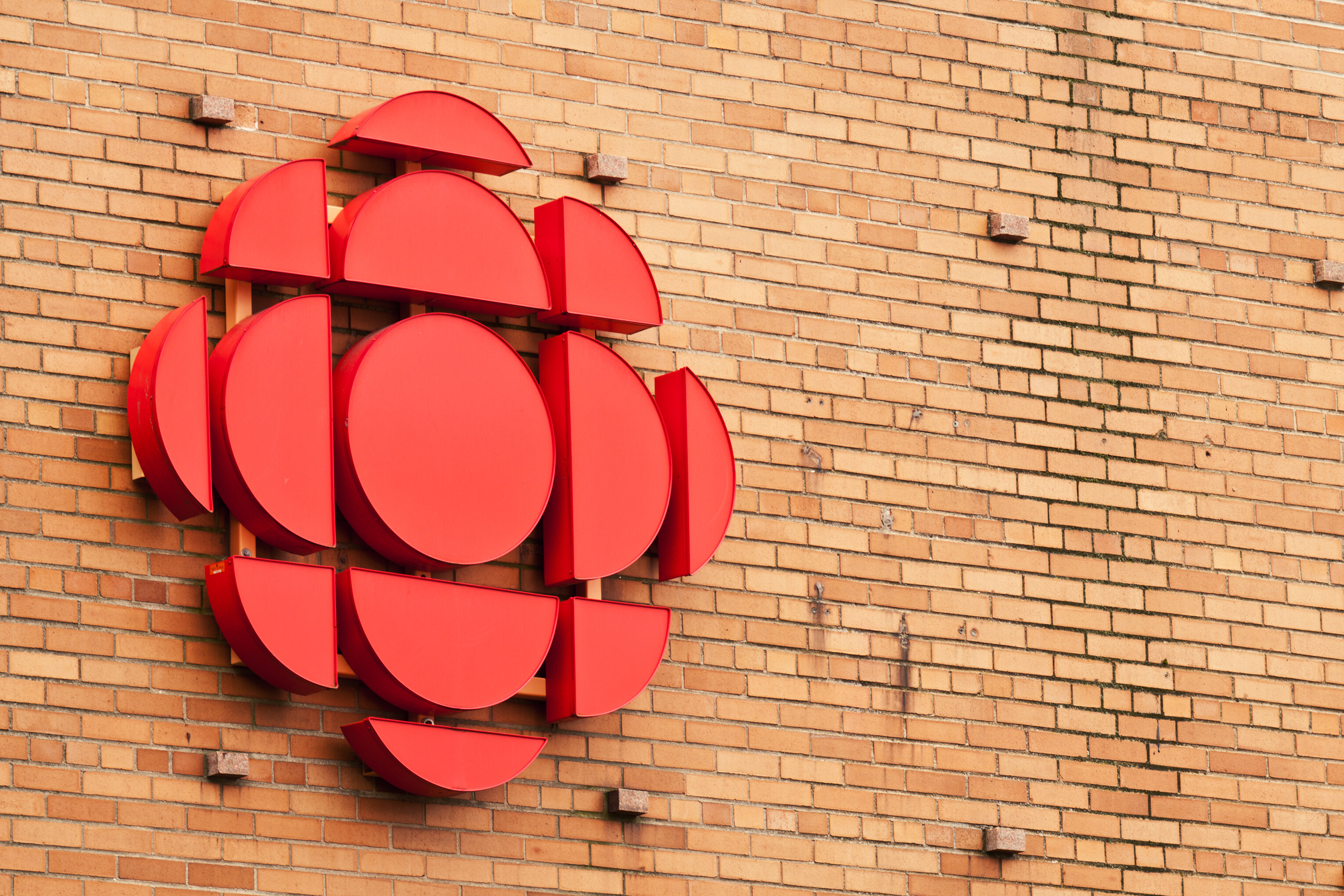INSIGHT
Strengthening Trust to Strengthen Our Democracy
9 November 2022
President and CEO of CBC/Radio-Canada, Catherine Tait, emphasises the need to cultivate trust and stand up for public broadcasting, to ultimately strengthen our democracy.
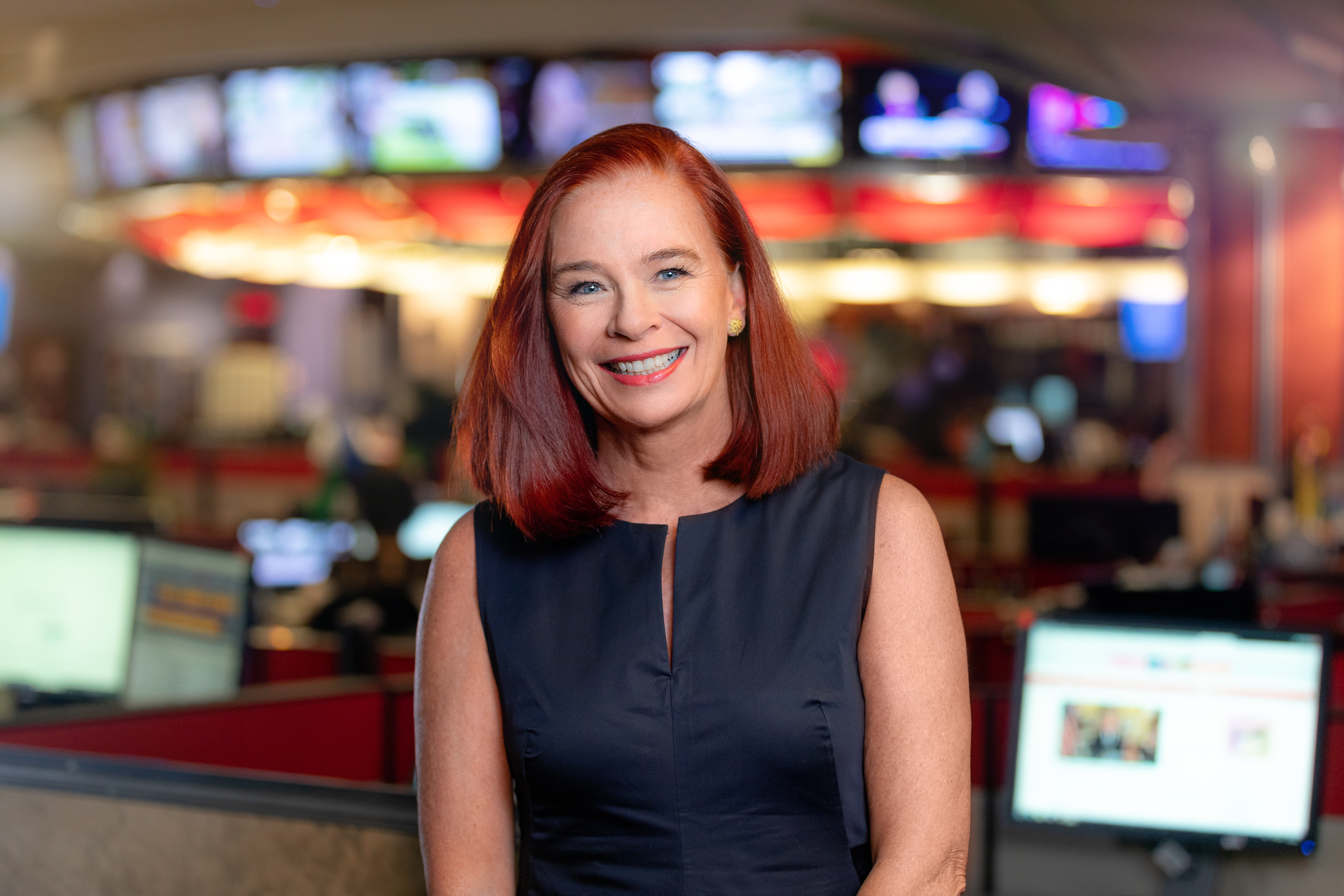
“A Canada without the CBC is a Canada without local news in places like PEI [Prince Edward Island] — when a devastating storm like Fiona strikes; less coverage of city councils; fewer journalists to hold decision-makers at all levels to account. All of this chipping away at Canadians’ ability to share a set of facts, and to make informed decisions. We lose trust.”
In a recent speech, CBC/Radio-Canada’s President and CEO, Catherine Tait, delved into why it is important for democratic society that people strengthen their trust in public institutions – like CBC/Radio-Canada – to help “counter polarization, combat misinformation”. She explained what the public broadcaster is doing to strengthen trust – with core values including “ability, affinity, authenticity”.
Plus, with calls from some quarters to “defund the CBC”, she questioned what Canada could actually look like without CBC, where a loss of local, trusted news and information in various languages could transpire.
On November 3, Catherine Tait, President and CEO of CBC/Radio-Canada, delivered a speech at the International Institute of Communications’ annual conference, where she drew attention to the urgent need to strengthen trust in our public institutions — including the public broadcaster — to counter polarization, combat misinformation and strengthen the democracy we all rely on.
Good afternoon. Thank you for that introduction Chris. And thanks to everyone for being here today.
Here we are together at the beautiful National Arts Centre.
For those of you who don’t live here in Ottawa, last February, during the occupation of the downtown, you would have had to pass through a police checkpoint to get here. All you would have heard is deafening truck horns. You might have seen people with signs proclaiming, “The media is the virus,” or worse, and others calling for the dissolution of the federal government.
Anger and mistrust, fuelled by disinformation, were on brazen display in a way I don’t think any of us has ever seen in Canada before. It was alarming. A group of Canadians so angry at their perceived loss of “freedom” around COVID measures, that they came to town with a demand to topple a democratically elected government. More than anything, the convoy protests brought to life the dangers of polarization and disinformation.
Read more: Gilles Marchand: Media and democracy, an inseparable and heckled couple (Insight)
And it showed us dramatically, vividly what happens when people lose trust.
We are here at this IIC conference to discuss the big questions and issues facing the telecom, media and technology sector. And I can’t think of an issue more urgent — for all of us — than failing trust.
It can be hard to rally people around the idea of trust. You can’t touch it, you can’t see it.
Yet think of how trust affects your life every day. You trust your friends and family. Hopefully you trust your doctor, some of your neighbours, your colleagues. This trust is what lets us live our lives without fear. We get in our car because we trust that other drivers won’t run red lights; we send our kids off to school because we trust they’re in good hands.
We put a tremendous amount of trust in the people around us. We have to. Without that trust, we wouldn’t be able to do anything. Without trust, we retreat and we become polarized. We can no longer agree on anything.
Former Governor General David Johnston, in his book on the subject, says trust is “both the glue and the grease of our society.” It holds things and people together. And it makes things move more smoothly.
I sometimes think of trust as energy. It’s a kinetic force that puts everything in motion. It lets us achieve things. Without it, we become paralyzed.
And just as our individual lives are worse if we don’t trust those around us, our society is worse if Canadians don’t trust the institutions around them.
Trust is essential to a democratic society. If we can’t have conversations and seek common ground together, we can’t move forward together.
I’m going to really dig into trust — what it means for public institutions, why it’s vital for our democracy, and what the public broadcaster is doing to strengthen it.
The research is pretty stark. The Edelman Trust Barometer finds that levels of trust worldwide have declined drastically across the board since the beginning of the pandemic. Government and media have recorded the sharpest drop. Just three years ago, 71% of Canadians said they trusted traditional media. Today, it’s barely half.
An Abacus survey this year found that 44% of Canadians believe that much of the information they receive from news organizations is false.
Misinformation has always existed. It’s been with us for centuries — but social media hasn’t.
Frances Haugen, the Facebook whistleblower, makes an interesting point: Today very powerful digital companies are using profit-generating algorithms to curate what you see; to amplify disinformation and lure people into a universe of distrust. This has implications for society, just as it does for your dinner conversation with relatives.
To be honest, I don’t think we — the media or government — are doing a good enough job countering this disinformation and misinformation.
We need to require social media platforms to be more transparent about what they do. That’s why the government’s promised online harm legislation is so important.
People need to understand that their ideas of “freedom” have already been compromised by Twitter and Facebook algorithms, which amplify hate. We need to explain how journalism actually works and how the public broadcaster provides unbiased, credible news.
Finally, we need to do more to help people evaluate the sources and quality of the information they’re exposed to.
Cultivating Trust
So how do organizations strengthen trust? There’s a useful model developed by the Gustavson School of Business at the University of Victoria. It identifies three factors that drive trust in all organizations. These are ability, affinity and authenticity.
Ability is simply whether consumers or audiences believe a brand or an organization does what it is meant to do. For a public broadcaster — are we providing reliable news and information and uniquely Canadian programming in both official languages?
Gustavson’s second trust factor is affinity; how a person feels about their relationship with an organization.
In the case of CBC/Radio-Canada, how do we serve Canadians? Do we respond to them quickly and transparently? Do we get our facts right? Do we live up to our own journalistic standards? And what do we do when we make a mistake?
Today, despite everything, 75% of Canadians say CBC/Radio-Canada is a trusted source of news.
The third element of trust is authenticity. And, according to Gustavson, authenticity is the most important driver for trust today. An organization is seen as authentic when it is perceived to act in ways that align with its stated values.
Does it contribute to societal well-being? Does it treat its employees fairly? If a company fails to deliver on a commitment — such as Volkswagen did on its emissions promise — it loses trust. And earning back trust is a longer road than winning it.
At CBC/Radio-Canada, our primary value is the public interest, and it guides everything we do.
That includes our commitment to the environment, privacy, equity, diversity and inclusion, and accessibility. Canadians care about these things. And we do too.
Ability, affinity, authenticity. That’s how we uphold the trust that the Canadian public has placed in us.
Is it working? I think so. Today, despite everything, 75% of Canadians say CBC/Radio-Canada is a trusted source of news.
Why? Accountability. We stand by our Journalistic Standards and Practices which outline our rules on things like unnamed sources, impartiality or conflicts of interest.
We are the only news organization in Canada with two independent ombudsmen who investigate complaints about our news and publish their findings for all Canadians to see. We regularly audit our content and coverage to ensure balance.
We’re also supporting media literacy so both children and adults can recognize when they are being targeted for manipulation. Radio-Canada’s Décrypteurs, for example, tracks and explains fake news online and in their weekly TV show.
CBC/Radio-Canada’s transparency and accountability are a big part of maintaining Canadians’ trust.
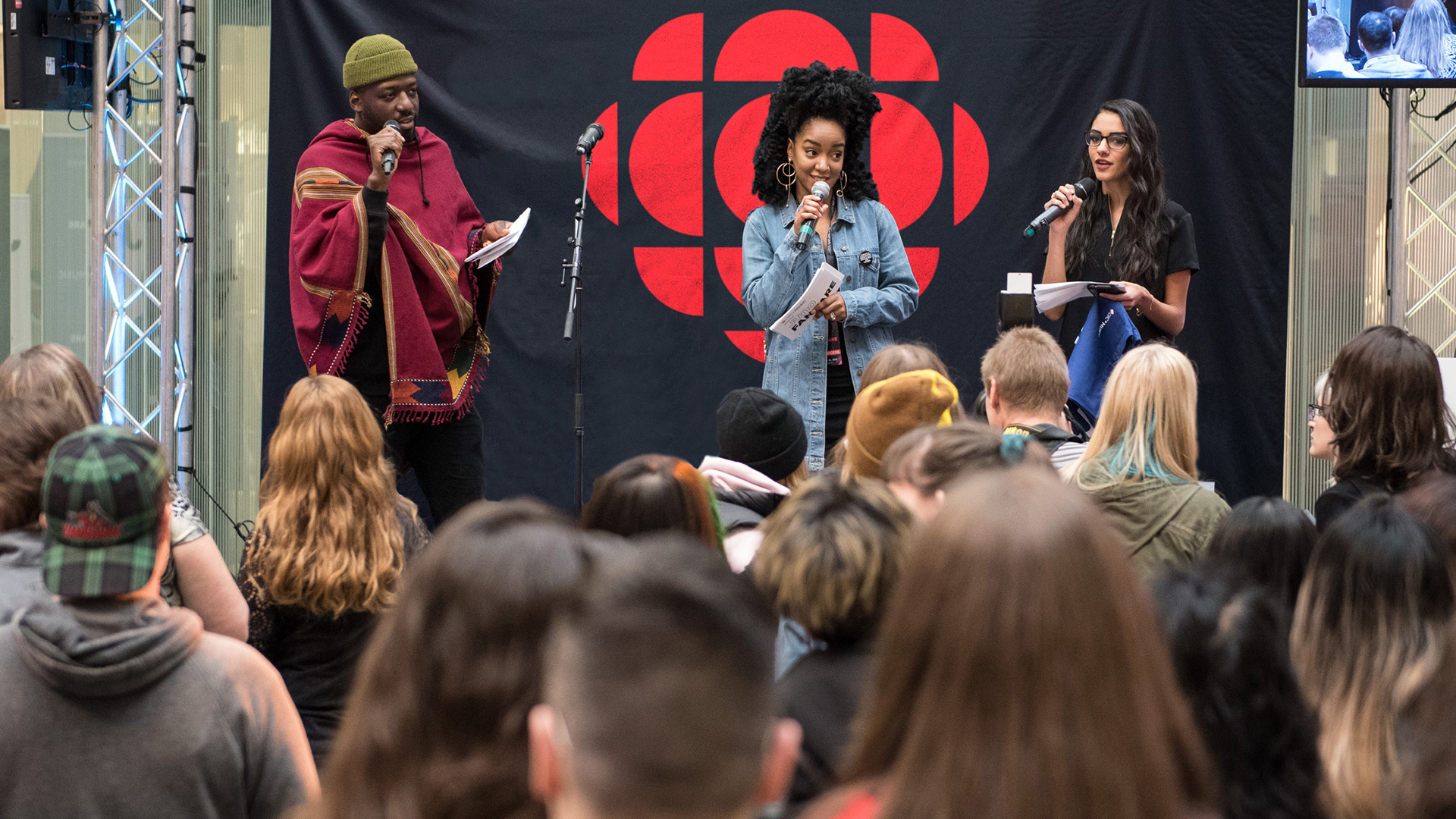
Standing Up for Public Broadcasting
And yet, public media is under siege in Canada and around the world. That’s why Bill C-18, the Online News Act, is so important. It will support a vibrant news ecosystem, of both private and public media, by helping us invest in more journalism in Canada.
Last week, Facebook, or Meta, threatened to block sharing of Canadian news stories altogether if the legislation goes ahead. It’s the same tactic that they tried in Australia.
Think about it. Rather than negotiate fair payment for trusted Canadian news, Meta would strip it from their site and leave the content that misleads, angers and divides. If Meta considers itself a good corporate citizen, it should care about the health of the Canadian society it is making money from.
We know that the presence of public broadcasting makes Canada more resistant to disinformation and extremism. Studies by scholars from the University of Pennsylvania and the University of Zurich have found that the presence of public media stimulates more diverse news coverage, better knowledge about public affairs, lower levels of extremist views and, as a result, stronger democracies.
In a podcast last month, former US President Obama spoke about threats to democracy. He makes the point that democracy isn’t just about voting on election day; it’s about people supporting all of the building blocks, the institutions, the practices, that support a healthy democracy every day. Public broadcasting is one of those blocks.
Many of you will have no doubt heard the calls by some to “defund the CBC.” I’m not sure those who chant the slogan really know what it would mean. I believe it’s important that everyone understand what is at stake.
Imagine a Canada without the CBC. It’s a Canada with much less trusted news and information. It’s a Canada where communities across our vast North are entirely cut off, from each other and from the rest of the country. And it’s a Canada where francophones in majority English communities, and anglophones in Quebec, would no longer be able to get local news in their language.
Every day, francophones outside Quebec depend on the local presence of Radio-Canada. It’s an essential condition for the survival of the French language in the country.
A Canada without the CBC is a Canada without local news in places like PEI — when a devastating storm like Fiona strikes; less coverage of city councils; fewer journalists to hold decision-makers at all levels to account. All of this chipping away at Canadians’ ability to share a set of facts, and to make informed decisions. We lose trust.
My point is that public institutions, like CBC/Radio-Canada, build trust, strengthen Canada and our democracy. And if we’re not careful, we’ll lose it.
All of us must strengthen trust in our public institutions. That’s how we counter polarization, combat misinformation and strengthen the democracy we all need.
Thank you.

About the author
Catherine Tait is the President & CEO, CBC/Radio-Canada, and Global Task Force Chair. CBC/Radio-Canada is a member of the Public Media Alliance.
Our thanks to Ms. Tait for providing this report. It was originally published on CBC/Radio-Canada.
Related Posts
2nd November 2022
Cilla Benkö: The fight for democracy and free speech is a life and death struggle
Swedish Radio's Cilla Benkö, reflects…
28th October 2022
PSM Unpacked | How can PSMs communicate public value to audiences?
MEMBERS EXCLUSIVE: In this PSM Unpacked…
26th October 2022
Media and democracy, an inseparable and heckled couple
The Director-General of SRG SSR, Gilles…
25th January 2022
‘AccessCBC’ – CBC’s new initiative for creators with disabilities
Canada’s public broadcaster recently…
